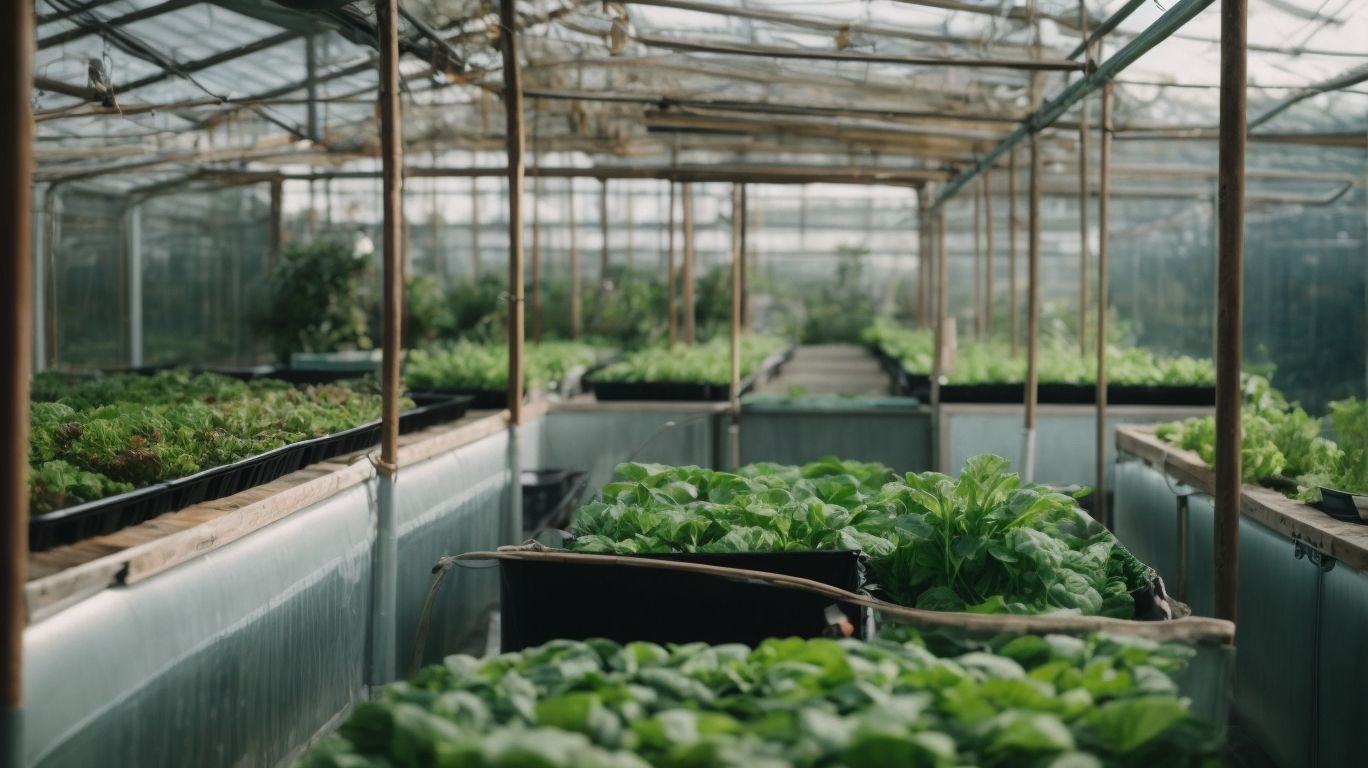Community gardening has become an increasingly popular and impactful practice in cities and communities around the world. This article aims to provide a comprehensive guide on how to assess the importance of community gardening with your mayor and effectively communicate its benefits and impacts.
From understanding the key factors to gathering data and evidence to support your case, to addressing potential challenges and collaborating with local authorities, we’ll explore the strategies and steps you can take to make a compelling case for community gardening in your city.
Whether you’re a passionate advocate or a concerned citizen looking to make a difference, this article will equip you with the knowledge and tools to engage with your mayor and drive positive change through community gardening initiatives.
Key Takeaways:
What Is Community Gardening?
Community gardening refers to the practice of collectively cultivating and maintaining shared green spaces within a local area, often involving the active participation of residents and community members.
This collaborative approach fosters a sense of unity and belonging among the participants, as they work together to nurture these green spaces. Community gardening not only contributes to a more sustainable environment but also serves as a hub for social interaction and knowledge sharing.
It provides a platform for individuals to come together, share gardening techniques, and exchange ideas about fostering healthier plant life, creating a vibrant sense of community. The shared effort in community gardening also helps in the implementation of environmental initiatives and promotes a greener, healthier lifestyle for everyone involved.
Why Is Community Gardening Important?
Community gardening holds significant importance in enhancing public spaces, fostering local economies, and providing support for small businesses, especially through initiatives such as SBA loans.
Community gardens contribute to the revitalization of urban areas, transforming underutilized spaces into vibrant hubs for residents to engage in sustainable and healthy food production. By involving local communities in the cultivation and maintenance of these green spaces, it creates a sense of pride, ownership, and connection to the environment. These gardens often serve as valuable educational platforms, promoting environmental awareness and sustainable practices.
What Are the Benefits of Community Gardening?
The benefits of community gardening extend to residents, local businesses, and the utilization of ARPA funds for sustainable and inclusive urban development.
Community gardening fosters a sense of belonging and community pride among residents, providing a common space for social interaction and collaboration, thereby enhancing mental well-being and reducing social isolation. The availability of fresh produce cultivates a culture of healthy eating and wellness, contributing to improved physical health and overall quality of life.
Local businesses benefit from increased foot traffic generated by community gardens, leading to enhanced economic activity and revitalization of the neighborhood. These gardens serve as platforms for farmers’ markets and artisan fairs, supporting small-scale entrepreneurs and fostering a vibrant local economy.
The utilization of ARPA funds for community gardening initiatives presents an opportunity for sustainable urban development, integrating green spaces and promoting environmental sustainability. Investing in such projects can enhance urban resilience, mitigate the effects of climate change, and create more inclusive and accessible public spaces for all community members.
What Are the Social and Environmental Impacts of Community Gardening?
Community gardening has notable social impacts on community cohesion and environmental benefits, often garnering the attention and support of city governments.
These community gardens serve as vital centers for fostering a sense of unity and cooperation among diverse community members, thereby creating strong bonds and fostering mutual understanding. They contribute to environmental sustainability through the promotion of green spaces, reduction of food miles, and preservation of local biodiversity.
The involvement of city governments in supporting and promoting these initiatives further amplifies their impact, as it symbolizes their commitment towards sustainable urban development and community well-being.
How Can You Assess the Importance of Community Gardening with Your Mayor?
Assessing the importance of community gardening with your mayor involves highlighting its positive impact on residents and the local economy, emphasizing the need for collaborative support and strategic urban development.
Engaging with the mayor to discuss community gardening can provide an opportunity to showcase the multiple benefits it offers to the community. By focusing on the positive impacts on residents, such as improved access to fresh produce, enhanced mental well-being, and a strengthened sense of community, you can emphasize the value it adds to the quality of life in the local area.
Emphasizing the economic benefits, such as job creation, local food systems, and increased property values, can demonstrate the potential for community gardening to contribute to the local economy and overall urban development.
What Are the Key Factors to Consider When Assessing Community Gardening?
When assessing community gardening, key factors to consider include gathering relevant data and evidence to demonstrate its positive impact on the community and local economy.
Understanding the demographics and needs of the local community is crucial in determining the potential benefits of community gardening. Researching the environmental impact, such as improved air quality, reduced waste, and conservation of biodiversity, can provide valuable insights. Assessing the economic influence, including access to affordable fresh produce, job creation, and the potential to boost local businesses, is essential. Gathering qualitative evidence from community members, such as testimonials and personal stories, can help to illustrate the social and emotional impact of community gardening.
How Can You Gather Data and Evidence to Support the Importance of Community Gardening?
Gathering data and evidence to support the importance of community gardening involves collaborating with city government, leveraging local resources, and engaging residents in participatory research initiatives.
Working alongside city officials can facilitate access to public data on land usage and environmental impact, aiding in the identification of suitable spaces for community gardens. Local resource utilization, such as composting organic waste and sourcing materials from nearby businesses, promotes sustainability. Engaging residents in research initiatives fosters a sense of ownership and understanding of the benefits of community gardening, while also generating valuable insights for further improvement.
What Strategies Can You Use to Communicate the Importance of Community Gardening to Your Mayor?
Communicating the importance of community gardening to your mayor involves employing strategic approaches that highlight its positive impact on public spaces, community well-being, and economic vitality.
One effective strategy is to showcase the role of community gardening in revitalizing public spaces. Highlighting how these green spaces contribute to a healthier environment and improve the aesthetics of the community can resonate with the mayor’s focus on urban development.
Emphasizing the positive impact on community well-being, such as providing a sense of belonging, fostering social connections, and promoting physical activity, can underscore the significance of community gardening in enhancing the overall quality of life for residents.
How Can You Present the Benefits and Impacts of Community Gardening to Your Mayor?
Presenting the benefits and impacts of community gardening to the mayor involves showcasing its positive influence on local areas, community well-being, and economic resilience, fostering support for collaborative initiatives.
Community gardening acts as an urban oasis, transforming vacant lots into vibrant green spaces that enhance the aesthetic appeal of neighborhoods. By bringing together diverse groups of residents, it encourages social interaction and cohesion, fostering a strong sense of community. It promotes environmental sustainability and provides access to fresh, nutritious produce, contributing to improved public health and nutrition for citizens of all backgrounds. The economic impact is also notable, with community gardens often stimulating local businesses and acting as catalysts for neighborhood revitalization.
What Are Some Examples of Successful Community Gardening Projects in Other Cities?
Several cities have witnessed successful community gardening projects that have positively impacted their local areas, demonstrating the potential for transformative urban development and community engagement.
For example, in Portland, Oregon, the Portland Community Gardens program has developed over 50 community gardens, fostering a sense of pride and ownership among residents while providing fresh produce for the local community. These gardens not only beautify the city but also create a sustainable, vibrant community space.
Likewise, in Detroit, the “Grown in Detroit” initiative has transformed vacant lots into fruitful community gardens, revitalizing neighborhoods and fostering a sense of community cohesion. Residents actively participate in planting, harvesting, and selling the produce, contributing to a more sustainable and healthier local food system.
What Are the Potential Challenges and Solutions for Implementing Community Gardening in Your City?
Implementing community gardening in your city may face challenges related to land availability, maintenance requirements, and resource allocation, necessitating strategic solutions and collaborative efforts.
Land availability is often a significant hurdle, as urban areas may have limited open spaces. Partnerships with local government bodies or private landowners could offer potential sites.
To overcome maintenance concerns, establishing a volunteer network or creating a maintenance fund can ensure ongoing care. Efficient resource allocation involves garnering support from local businesses, leveraging sustainable practices, and securing access to water sources for irrigation.
How Can You Address Concerns About Land Availability and Maintenance?
Addressing concerns about land availability and maintenance involves engaging residents, exploring alternative space utilization, and establishing sustainable maintenance practices to ensure the success of community gardening initiatives.
Engaging residents in the decision-making process regarding potential land use and maintenance plans can foster a sense of ownership and commitment within the community. Empowering them to contribute ideas and actively participate in gardening activities not only enriches the physical landscape but also cultivates a strong sense of community spirit.
Exploring alternative space utilization encompasses innovative approaches such as vertical gardening, rooftop gardens, and the repurposing of underutilized urban spaces. These solutions maximize available land resources, reduce maintenance costs, and promote sustainable gardening practices.
Establishing sustainable maintenance practices involves implementing eco-friendly techniques, such as composting organic waste, using rainwater harvesting systems, and prioritizing native plant species. Adopting these approaches can significantly reduce the environmental footprint of community gardens while nurturing a harmonious relationship between nature and the local community.
What Resources and Support are Available for Starting a Community Garden?
Various resources and support avenues are available for starting a community garden, including assistance from local businesses, potential SBA loans, and community outreach initiatives.
Local business support can be crucial for acquiring donations, sponsorships, or discounted supplies and equipment, aiding in the initiation and maintenance of the community garden. In addition, leveraging potential SBA loans can provide essential financial backing for securing land, infrastructure, and initial operating costs, facilitating the establishment and growth of the garden.
Community outreach initiatives encompassing outreach programs, volunteer recruitment drives, and public awareness campaigns play a pivotal role in fostering community involvement and investment in the community garden project. Engaging local residents, schools, and organizations can result in a collective effort to nurture and sustain the garden, fostering a sense of ownership and pride within the community.
How Can You Collaborate with Your Mayor to Implement Community Gardening Initiatives?
Collaborating with your mayor to implement community gardening initiatives involves fostering a strong partnership with city government, articulating the benefits, and engaging in strategic planning for sustainable urban development.
To build a successful partnership with the city government, it is crucial to understand the local regulations and seek their support in identifying potential garden sites. Engaging city officials through open communication and emphasizing the positive impact of community gardens on the environment, food accessibility, and community cohesion can garner their support.
Strategic planning for sustainable urban development involves conducting feasibility studies, securing funding, and collaborating with urban planners and environmental experts to ensure that the gardening initiatives align with the city’s long-term planning goals.
What Are Some Strategies for Building a Strong Relationship with Your Mayor?
Building a strong relationship with your mayor involves engaging residents, demonstrating the value of community gardening, and fostering open communication to garner support and commitment for collaborative initiatives.
Resident engagement is vital in building a strong relationship with the mayor. Encouraging their participation in community gardening projects not only exemplifies the value of green spaces and sustainable living, but also creates a sense of ownership in the local environment.
Open communication channels, such as town hall meetings and interactive platforms, provide avenues for residents to voice their opinions and concerns, facilitating a more inclusive decision-making process. By actively involving the community in initiatives and highlighting the benefits to them, the mayor will see the tangible impact and be more inclined to support and champion collaborative projects.
How Can You Work Together to Overcome Challenges and Ensure the Success of Community Gardening in Your City?
Working together with the mayor to overcome challenges and ensure the success of community gardening in your city requires proactive collaboration, adaptive solutions, and sustained community engagement for enduring positive impact.
Proactive collaboration involves creating a shared vision with the mayor to identify suitable locations for community gardens and securing necessary resources such as land, water, and tools. Establishing open lines of communication and regular meetings with the mayor’s office can foster a sense of partnership and mutual support.
Implementing adaptive solutions entails being receptive to feedback and adjusting community gardening initiatives based on changing circumstances or emerging opportunities. This may involve modifying gardening techniques to maximize yields or navigating bureaucratic obstacles by seeking creative alternatives.
Sustained community engagement is vital for the long-term success of community gardening efforts. By involving local residents, organizing educational workshops, and promoting volunteer involvement, the entire community can be invested in the project and contribute to its ongoing development and prosperity.
Frequently Asked Questions
What is community gardening and why is it important to involve the mayor?
Community gardening is a practice where community members come together to cultivate and maintain a shared garden space. Involving the mayor in community gardening is important because it allows for support and collaboration between local government and the community.
How can community gardening benefit the community and its residents?
Community gardening provides numerous benefits to the community and its residents, such as increasing access to fresh produce, promoting physical activity, and creating a sense of community and empowerment.
What are some strategies for assessing the importance of community gardening with your mayor?
1. Conduct a needs assessment to determine the community’s interest in community gardening.
2. Schedule a meeting with the mayor to discuss the benefits and potential impact of community gardening.
3. Involve community members in the planning and decision-making process.
4. Use data and research to support the importance of community gardening.
5. Collaborate with local organizations and businesses to gain support and resources.
6. Host a community event or garden tour to showcase the benefits of community gardening.
How can involving the mayor in community gardening help with funding and resources?
Involving the mayor in community gardening can increase awareness and support for the project, making it more likely to receive funding and resources from the local government. The mayor can also help connect with other organizations and businesses for potential partnerships and donations.
What potential challenges may arise when involving the mayor in community gardening?
Some potential challenges that may arise include conflicting priorities or schedules, differing opinions on the importance of community gardening, and limited resources or funding. It’s important to address these challenges and find solutions to ensure a successful partnership with the mayor.
How can community gardening with the mayor be sustained in the long-term?
To sustain community gardening with the mayor, it is important to continually engage and involve the community, regularly communicate with the mayor and local government, and seek out new opportunities for funding and resources. It’s also important to establish a strong foundation and set clear goals and objectives for the community garden.


